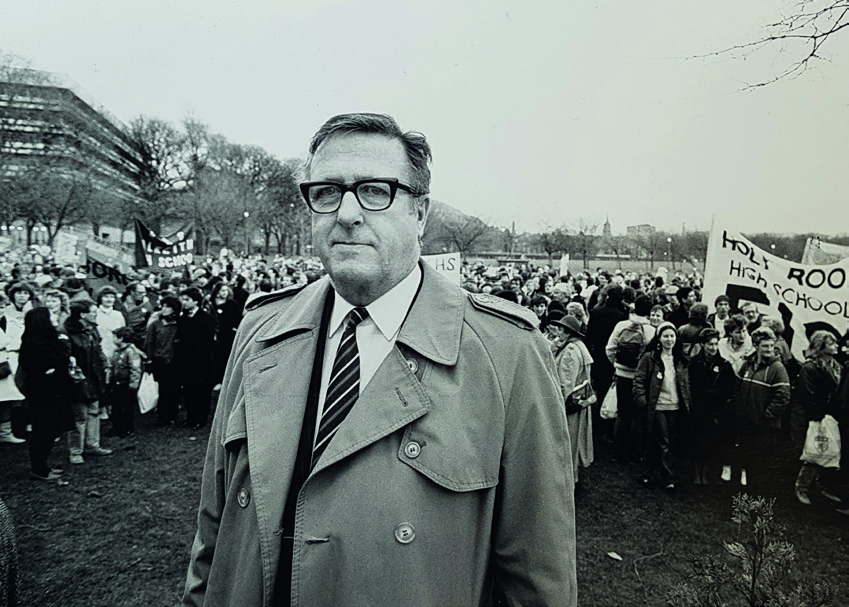The first landmark pay battle in recent times was in the early 1970s, when teachers, north and south of the border, agitated for significant pay rises. Finally, in 1974, the Labour government set up the Houghton committee to investigate teachers’ pay across the UK.
1974 also saw the appointment of John Pollock as EIS general secretary designate and shortly after taking up post, he led the EIS into strike action to provoke early publication of the full report which offered teachers on both sides of the border a substantial uplift in pay – 31 per cent for Scottish teachers and 29 per cent for those south of the border, backdated for the best part of a year leading to “quite handsome cheques” for many teachers.
Pollock was a highly respected political figure and he is often credited with being the catalyst to the modernisation of the EIS. He served as STUC chair in 1981-82, cementing the role now played within the broader trade union movement by the EIS.
By the time of his retirement in 1988, EIS membership had grown from just over 50 per cent of the teaching profession in Scotland to 80 per cent.
The “high-point” of Houghton, which Pollock led to a conclusion, became a reference point across the remainder of the 70s as inflation ate away at the real value of teachers’ pay. Pollock also played a significant role in the next pay challenge.
In an effort to stem the public-service disputes of the “Winter of Discontent” in 1979, the Labour government established a commission on pay comparability, chaired by Hugh Clegg, an academic specialising in industrial relations.
The following year, April 1980, Clegg reported on this steady decline and recommended increases of between 17 and 25 per cent, which were welcomed, of course, by teachers.
The election in 1979 of Margaret Thatcher, however, who had committed to implementing the Clegg review and was required to deliver, marked a significant change to public sector pay and conditions and when, almost inevitably, teachers’ pay again began to slip against inflation the scene was set for possibly the most significant pay campaign in the development of the EIS.

ACKNOWLEDGEMENTS:
Research, interviews and substantive writing:
Adi Bloom
Design and lay-out:
Stuart Cunningham and Paul Benzie
Additional writing and research:
EIS Comms Team and assorted staff members
Printed by:
Ivanhoe Caledonian, Seafield Edinburgh
Photography:
Graham Edwards, Mark Jackson, Elaine Livingston, Toby Long, Ian Marshall, Alan McCredie, Alan Richardson, Graham Riddell, Lenny Smith, Johnstone Syer, Alan Wylie


Thanks to the many former activists and officers who gave of their time to be interviewed and taken a stroll down memory lane. And of course a very special thanks to the EIS members who created this history through their activism and commitment to the cause of Scottish Education.
© 2022 The Educational Institute of Scotland